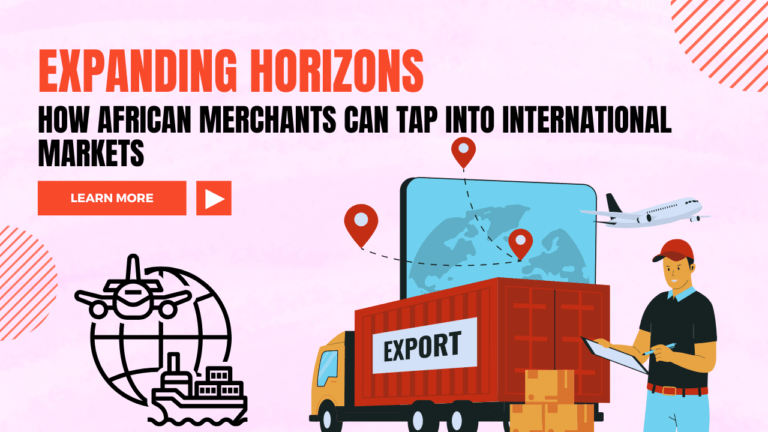- Your cart is empty
- Continue Shopping

Kuueza - "The African Spirit"!
Happy New Month, Kuuezans!
We’re excited to bring you the latest edition of Kuueza Weekly Korner. It’s been a while and we miss you too! We are still in our anniversary celebration mood though…
This week, we’ve got a lot to share, from exciting updates to insightful tips that will help you get the most out of your Kuueza experience. Whether you’re a new user or a seasoned pro, there’s something here for everyone.
Enjoy the read!
Kuueza Internship Cohort 2024
Over the past weeks, we successfully onboarded new interns from Ghana, Nigeria and Kenya to the Kuueza family. After a month long application and screening process, we are excited to announce our top Kuueza interns for the 2024 cohort. The internship cohort seeks to provide an 8-week mentorship program for highly skillful applicants into the B2B ecommerce landscape in Africa. Interns that successfully complete the internship milestones will be fully join the Kuueza team full-time. Meet our interns below;

New Stores Alert
Two new vendors graced the first 2 weeks of October. Tessna Ltd from Ghana and Glowlite Charcoal Stove from Nigeria. Check out their amazing products on our website.


New Products Spotlight
Sesame Seeds 227G
Avocado Powder 227G
Pepper soup spice powder [Mixed chilis] 100g

Africa’s booming entrepreneurial spirit and unique products make it a rising star in global commerce. However, tapping into international markets can be a challenge for African merchants due to logistics, unfamiliar regulatory landscapes, and differences in consumer behavior. Fortunately, with the right strategies, African merchants can overcome these hurdles and expand their reach globally. Here’s a roadmap to help African businesses attract and engage an international audience.
1. Embrace E-commerce and Digital Presence
In the digital age, an online presence is essential for reaching a global market. E-commerce platforms allow merchants to showcase their products beyond local borders and build a brand recognizable worldwide. Here’s how to get started:
- Choose an E-commerce Platform: Platforms like Shopify, Etsy, and Kuueza offer great entry points for African merchants. Each platform has its strengths, so choose one that aligns with your product type and target audience.
- Build a Mobile-friendly Website: Many African consumers already rely on mobile devices for internet access, and international consumers are also moving in this direction. A mobile-responsive site enhances user experience and boosts sales potential.
- Utilize Social Media Marketing: Platforms like Instagram, TikTok, and Facebook are effective for visually appealing products, while LinkedIn and Twitter can help with business networking and establishing industry connections.
2. Understand and Adapt to International Consumer Behavior
International buyers may have different preferences, spending habits, and expectations than your local customers. By adapting to these, merchants can better align their offerings with international markets.
- Research Target Markets: Understanding a market’s buying behavior, trends, and expectations is critical. For example, U.S. consumers may prefer sustainable, eco-friendly products, while Asian markets may prioritize high-quality craftsmanship.
- Emphasize Quality and Authenticity: African products, such as handmade crafts, textiles, and organic skincare products, are unique in quality and authenticity. Highlight these elements to captivate international buyers seeking unique, artisan products.
- Offer Transparent Pricing: Be clear about your pricing structure, especially concerning currency conversions, shipping, and potential customs duties. Avoid hidden fees to build trust with customers unfamiliar with international shopping.
3. Optimize Payment Options and Shipping Logistics
Securing payments and providing reliable shipping are fundamental to gaining customer trust when expanding globally. Many international customers may abandon a purchase if their preferred payment method isn’t available, or shipping costs are too high.
- Use Multiple Payment Gateways: Accepting credit cards, PayPal, and even cryptocurrency can help cater to international customers with different preferences. Companies like Flutterwave or Paystack simplify payment processing for African businesses with international aspirations.
- Partner with Global Shipping Companies: Establish relationships with reliable shipping providers. DHL, FedEx, and UPS have tailored services for e-commerce merchants and offer various solutions for international shipping.
- Offer Transparent Shipping Times: Set realistic expectations about shipping times to different regions. Consider offering expedited options, but be clear about the costs and benefits of each option.
4. Leverage Cross-Border Partnerships and Networks
Collaborations and partnerships can pave the way for expansion. Many international businesses look to partner with African brands to diversify their offerings.
- Collaborate with Local Influencers and Brand Ambassadors: Partnering with influencers who have an international following can increase brand awareness. Choose influencers who resonate with your brand’s values and target audience.
- Explore Partnerships with Global Retailers: Many global brands and retailers are interested in sourcing products from African artisans and creators. This route may take more negotiation and planning, but it can significantly boost your brand visibility and credibility.
- Attend International Trade Fairs and Online Expos: Trade fairs, such as the New York NOW or Paris Trade Fair, provide exposure to global buyers. These events, often attended by retailers, designers, and other industry professionals, can help you connect with international business opportunities.
5. Comply with International Regulations and Standards
International markets come with their own sets of rules, from quality standards to certifications. Ensuring your business is compliant not only protects your reputation but also builds consumer trust.
- Get Certifications for Export and Quality Standards: Various international markets require certifications for health, safety, and environmental standards. For example, EU markets may require CE marking for certain products, while the U.S. has its own set of import standards.
- Research Import/Export Regulations in Target Countries: Be aware of tariffs, quotas, or restrictions on certain goods. Some countries offer duty exemptions for specific product types, so research these avenues to reduce costs.
- Consider Language and Cultural Sensitivity: For markets where English is not widely spoken, translating product descriptions and marketing materials into the local language can boost trust and attract more customers.
Trending African Business News
Top Innovators in Africa: Mauritius, South Africa, and Botswana lead in African innovation, with increased R&D and tech adoption.
FT Africa Summit 2024: Focused on economic recovery and green energy, with participation from Kenya, South Africa, and Tanzania.
BRICS Fashion Federation: African countries signed a declaration to boost fashion collaboration within BRICS.
Nigerian Job Growth: Sectors like tech and manufacturing are driving employment in Nigeria.
Crisis Management Strategies: African businesses are urged to adapt for resilience amid economic pressures.
CANEX 2024: Nigeria hosted the Creative Africa Nexus (CANEX), advancing Africa’s creative industries on a global scale.
M-KOPA Milestone: Fintech platform M-KOPA achieved 5 million customers and $1.5 billion in credit distributed.
Flour Mills of Nigeria Investment: Flour Mills of Nigeria announced plans for a $1 billion investment.
South Africa Property Boom: The South African property market is showing signs of growth.
Ogilvy Africa Launches OBrio: A new all-in-one media intelligence platform, OBrio, was launched.
Phil Igwe
Igwe Philip is a staff of Kuueza Limited. He currently leads the Kuueza Nigerian team with expertise in business development, marketing, sales and customer service support. He loves to read, travel and attend seminars in the business and logistics sector.
See all author post



A very interesting read. Proud of you guys for thinking oif small business in Africa